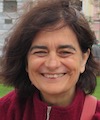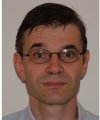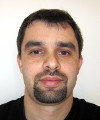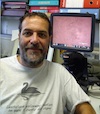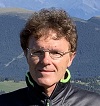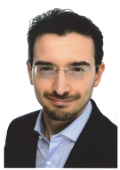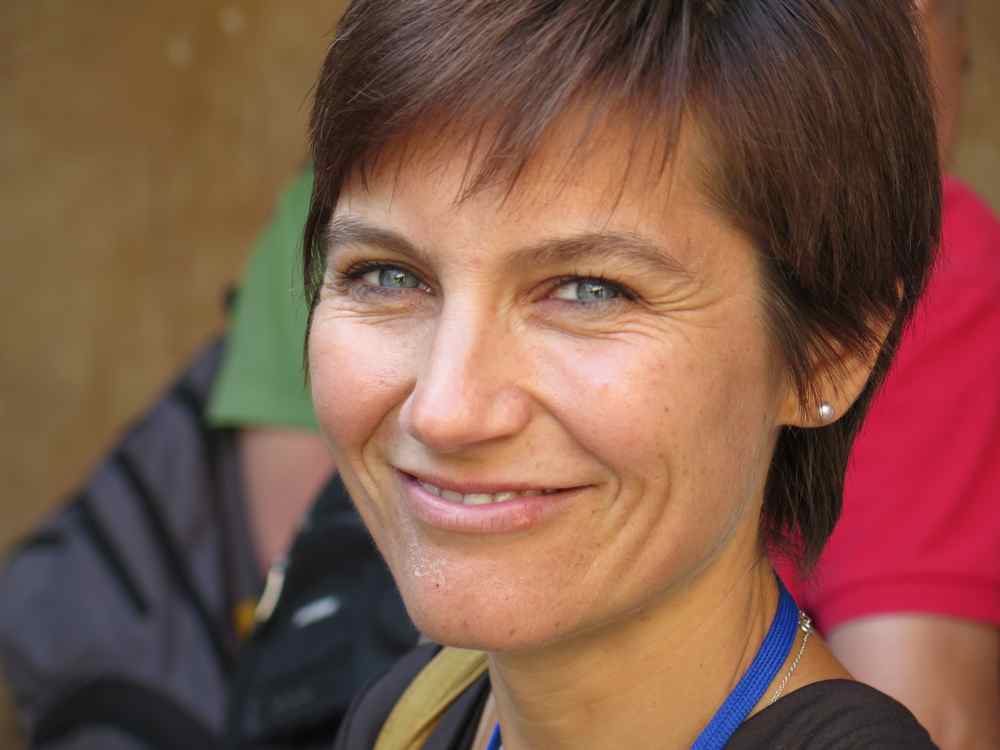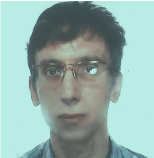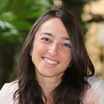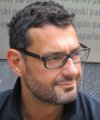Studying at the University of Verona
Here you can find information on the organisational aspects of the Programme, lecture timetables, learning activities and useful contact details for your time at the University, from enrolment to graduation.
Academic calendar
The academic calendar shows the deadlines and scheduled events that are relevant to students, teaching and technical-administrative staff of the University. Public holidays and University closures are also indicated. The academic year normally begins on 1 October each year and ends on 30 September of the following year.
Course calendar
The Academic Calendar sets out the degree programme lecture and exam timetables, as well as the relevant university closure dates..
| Period | From | To |
|---|---|---|
| Semester 1 | Oct 3, 2022 | Jan 27, 2023 |
| Semester 2 | Mar 6, 2023 | Jun 16, 2023 |
| Session | From | To |
|---|---|---|
| Sessione invernale d'esame | Jan 30, 2023 | Mar 3, 2023 |
| Sessione estiva d'esame | Jun 19, 2023 | Jul 31, 2023 |
| Sessione autunnale d'esame | Sep 4, 2023 | Sep 29, 2023 |
| Session | From | To |
|---|---|---|
| Sessione estiva di laurea | Jul 20, 2023 | Jul 20, 2023 |
| Sessione autunnale di laurea | Oct 12, 2023 | Oct 12, 2023 |
| Sessione autunnale di laurea - dicembre | Dec 6, 2023 | Dec 6, 2023 |
| Sessione invernale di laurea | Mar 14, 2024 | Mar 14, 2024 |
| Period | From | To |
|---|---|---|
| Ponte Festa di tutti i Santi | Oct 31, 2022 | Nov 1, 2022 |
| Ponte dell'Immacolata Concezione | Dec 8, 2022 | Dec 9, 2022 |
| Vacanze natalizie | Dec 23, 2022 | Jan 8, 2023 |
| Vacanze di Pasqua | Apr 7, 2023 | Apr 10, 2023 |
| Festa della Liberazione | Apr 24, 2023 | Apr 25, 2023 |
| Festa del lavoro | May 1, 2023 | May 1, 2023 |
| Festa del Santo Patrono | May 21, 2023 | May 21, 2023 |
| Festa della Repubblica | Jun 2, 2023 | Jun 2, 2023 |
| Chiusura estiva | Aug 14, 2023 | Aug 19, 2023 |
Exam calendar
Exam dates and rounds are managed by the relevant Science and Engineering Teaching and Student Services Unit.
To view all the exam sessions available, please use the Exam dashboard on ESSE3.
If you forgot your login details or have problems logging in, please contact the relevant IT HelpDesk, or check the login details recovery web page.
Should you have any doubts or questions, please check the Enrollment FAQs
Academic staff
 michele.ginesi@univr.it
michele.ginesi@univr.it
 rosanna.laking@univr.it
rosanna.laking@univr.it
 alessia.mandini@univr.it
alessia.mandini@univr.it
 daniela.pianezzi@univr.it
daniela.pianezzi@univr.it
 silvia.ruggieri@univr.it
silvia.ruggieri@univr.it
 claudio.tomazzoli@univr.it
claudio.tomazzoli@univr.it
 franco.zivcovich@univr.it
franco.zivcovich@univr.it
 simone.zuccher@univr.it
simone.zuccher@univr.it
Study Plan
The Study Plan includes all modules, teaching and learning activities that each student will need to undertake during their time at the University.
Please select your Study Plan based on your enrollment year.
1° Year
| Modules | Credits | TAF | SSD |
|---|
2° Year activated in the A.Y. 2023/2024
| Modules | Credits | TAF | SSD |
|---|
3° Year It will be activated in the A.Y. 2024/2025
| Modules | Credits | TAF | SSD |
|---|
| Modules | Credits | TAF | SSD |
|---|
| Modules | Credits | TAF | SSD |
|---|
| Modules | Credits | TAF | SSD |
|---|
| Modules | Credits | TAF | SSD |
|---|
Legend | Type of training activity (TTA)
TAF (Type of Educational Activity) All courses and activities are classified into different types of educational activities, indicated by a letter.
Type D and Type F activities
Le attività formative di tipologia D sono a scelta dello studente, quelle di tipologia F sono ulteriori conoscenze utili all’inserimento nel mondo del lavoro (tirocini, competenze trasversali, project works, ecc.). In base al Regolamento Didattico del Corso, alcune attività possono essere scelte e inserite autonomamente a libretto, altre devono essere approvate da apposita commissione per verificarne la coerenza con il piano di studio. Le attività formative di tipologia D o F possono essere ricoperte dalle seguenti attività.
1. Insegnamenti impartiti presso l'Università di Verona
Comprendono gli insegnamenti sotto riportati e/o nel Catalogo degli insegnamenti (che può essere filtrato anche per lingua di erogazione tramite la Ricerca avanzata).
Modalità di inserimento a libretto: se l'insegnamento è compreso tra quelli sottoelencati, lo studente può inserirlo autonomamente durante il periodo in cui il piano di studi è aperto; in caso contrario, lo studente deve fare richiesta alla Segreteria, inviando a carriere.scienze@ateneo.univr.it il modulo nel periodo indicato.
2. Attestato o equipollenza linguistica CLA
Oltre a quelle richieste dal piano di studi, per gli immatricolati dall'A.A. 2021/2022 vengono riconosciute:
- Lingua inglese: vengono riconosciuti 3 CFU per ogni livello di competenza superiore a quello richiesto dal corso di studio (se non già riconosciuto nel ciclo di studi precedente).
- Altre lingue e italiano per stranieri: vengono riconosciuti 3 CFU per ogni livello di competenza a partire da A2 (se non già riconosciuto nel ciclo di studi precedente).
Tali cfu saranno riconosciuti, fino ad un massimo di 6 cfu complessivi, di tipologia F se il piano didattico lo consente, oppure di tipologia D. Ulteriori crediti a scelta per conoscenze linguistiche potranno essere riconosciuti solo se coerenti con il progetto formativo dello studente e se adeguatamente motivati.
Gli immatricolati fino all'A.A. 2020/2021 devono consultare le informazioni che si trovano qui.
Modalità di inserimento a libretto: richiedere l’attestato o l'equipollenza al CLA e inviarlo alla Segreteria Studenti - Carriere per l’inserimento dell’esame in carriera, tramite mail: carriere.scienze@ateneo.univr.it
3. Competenze trasversali
Scopri i percorsi formativi promossi dal TALC - Teaching and learning center dell'Ateneo, destinati agli studenti regolarmente iscritti all'anno accademico di erogazione del corso https://talc.univr.it/it/competenze-trasversali
Modalità di inserimento a libretto: non è previsto l'inserimento dell'insegnamento nel piano di studi. Solo in seguito all'ottenimento dell'Open Badge verranno automaticamente convalidati i CFU a libretto. La registrazione dei CFU in carriera non è istantanea, ma ci saranno da attendere dei tempi tecnici.
4. CONTAMINATION LAB
Il Contamination Lab Verona (CLab Verona) è un percorso esperienziale con moduli dedicati all'innovazione e alla cultura d'impresa che offre la possibilità di lavorare in team con studenti e studentesse di tutti i corsi di studio per risolvere sfide lanciate da aziende ed enti. Il percorso permette di ricevere 6 CFU in ambito D o F. Scopri le sfide: https://www.univr.it/clabverona
ATTENZIONE: Per essere ammessi a sostenere una qualsiasi attività didattica, incluse quelle a scelta, è necessario essere iscritti all'anno di corso in cui essa viene offerta. Si raccomanda, pertanto, ai laureandi delle sessioni di dicembre e aprile di NON svolgere attività extracurriculari del nuovo anno accademico, cui loro non risultano iscritti, essendo tali sessioni di laurea con validità riferita all'anno accademico precedente. Quindi, per attività svolte in un anno accademico cui non si è iscritti, non si potrà dar luogo a riconoscimento di CFU.
5. Periodo di stage/tirocinio
Oltre ai CFU previsti dal piano di studi (verificare attentamente quanto indicato sul Regolamento Didattico): qui informazioni su come attivare lo stage.
Insegnamenti e altre attività che si possono inserire autonomamente a libretto
| years | Modules | TAF | Teacher |
|---|---|---|---|
| 1° 2° 3° | Algorithms | D |
Roberto Segala
(Coordinator)
|
| 1° 2° 3° | Basis of general chemistry | D |
Chiara Nardon
|
| 1° 2° 3° | Genetics | D |
Massimo Delledonne
(Coordinator)
|
| 1° 2° 3° | Introduction to Docker | D |
Franco Fummi
(Coordinator)
|
| 1° 2° 3° | Mobile app design by using React Native | D |
Graziano Pravadelli
(Coordinator)
|
| years | Modules | TAF | Teacher |
|---|---|---|---|
| 1° 2° 3° | Algebraic Geometry | D |
Rosanna Davison Laking
|
| 1° 2° 3° | Algorithms | D |
Roberto Segala
(Coordinator)
|
| 1° 2° 3° | LaTeX Language | D |
Enrico Gregorio
(Coordinator)
|
| 1° 2° 3° | Python programming language | D |
Carlo Combi
(Coordinator)
|
| 1° 2° 3° | Organization Studies | D |
Serena Cubico
(Coordinator)
|
| 1° 2° 3° | History and Didactics of Geology | D |
Guido Gonzato
(Coordinator)
|
| years | Modules | TAF | Teacher | |
|---|---|---|---|---|
| 1° | Subject requirements: mathematics | D |
Franco Zivcovich
|
|
| 1° 2° 3° | ECMI modelling week | F | Not yet assigned | |
| 1° 2° 3° | ESA Summer of code in space (SOCIS) | F | Not yet assigned | |
| 1° 2° 3° | Federated learning from zero to hero | D |
Gloria Menegaz
|
|
| 1° 2° 3° | Google summer of code (GSOC) | F | Not yet assigned | |
Macroeconomics (2023/2024)
Teaching code
4S00242
Teacher
Coordinator
Credits
6
Language
Italian
Scientific Disciplinary Sector (SSD)
SECS-P/01 - ECONOMICS
Period
Semester 2 dal Mar 4, 2024 al Jun 14, 2024.
Courses Single
Authorized
Learning objectives
The course aims to investigate the functioning of an economy, and the role played in it by the main aggregate variables: GDP, added values, incomes, consumption, investments, taxes and public spending, labor and employment, prices, money supply and interest rate. These variables will be studied with the use of formalized theories, enriched by an empirical analysis on World Bank data. They refer to three markets. First, the goods market, both on the demand and on the supply side. Second, the market for money and financial assets, with particular attention to the variables that determine the interest rate. Third, the labor market, with the importance of the unemployment rate and the dynamics played by prices in the vicinity of full employment. The analysis will be conducted both in terms of short and long term, looking for the interdependencies and the links between the various markets described above, and on how the state can correct, through its policies, their limits and failures. I The main theories will be presented using a mix of descriptive, graphic and mathematical language. At the end of the lessons, the student will have to demonstrate to be able to use the analytical tools of the macroeconomics to understand and interpret the phenomena that regulate the evolution of economic systems at national aggregate level and to evaluate the macroeconomic effects of the intervention of the Central Bank and of the fiscal policy authorities .
Prerequisites and basic notions
No previous knowledge of economic theory is needed. The required mathematics focuses on linear equations and Cartesian representations, with possible basic use of derivatives, exponentials, geometric series, linear programming.
Program
The program carried out is organized as follows:
1. Natural Sciences and Social Sciences: Macroeconomics in the History of Economic Thought
2. The National Accounts and the empirical macroeconomic analysis
3. The Goods Market
4. The Money-Financial Market
5. The IS-LM Model
6. Macroeconomics and Economic Policy
7. Economic growth
8. Economic growth and capitalist instability
Recommended textbooks (from the most complete to the most concise):
1. Blanchard O., Amighini A., Giavazzi F., Macroeconomia, Il Mulino, 2020, or earlier editions.
2. Dornbusch, R., Fischer S., Startz R. et al., Macroeconomia, McGraw Hill, 2020, or earlier editions.
3. Blanchard O., Amighini A., Giavazzi F., Scoprire la macroeconomia, Il Mulino, 2020, or earlier editions: an abridged version of (1).
Workbook for textbooks (1) and (3):
Findlay D.W. Esercizi di Macroeconomia. Guida allo studio del testo di Olivier Blanchard, et al. Il Mulino, 2021.
Bibliography
Didactic methods
In addition to the traditional lectures, attending students will be involved in using the official macroeconomic statistics of the main countries. Weekly tests (quizzes and exercises) will also be available on the course website to verify the degree of learning.
Learning assessment procedures
Written exam served as a test, with quizzes and exercises, optional oral examination, and supplementary bonuses for those students who have completed the learning activities and projects assigned during the course.
Evaluation criteria
The examination tends to verify the degree of knowledge of economic logic, both theoretically and applied with exercises. The latter, in particular, aim to measure the ability of "problem-solving" on macroeconomic issues rather than measure pure technical-mathematical skills. The degree of participation in the activities during the course will also be taken into account in the evaluation.
Criteria for the composition of the final grade
Written exam: 50% weight in theoretical tests, and 50% in numerical exercises. The oral exam is optional, if the written exam is sufficient, and can integrate the latter's grade. Bonuses can add up to 3 points to the final grade.
Exam language
Italiano
Career prospects
Module/Programme news
News for students
There you will find information, resources and services useful during your time at the University (Student’s exam record, your study plan on ESSE3, Distance Learning courses, university email account, office forms, administrative procedures, etc.). You can log into MyUnivr with your GIA login details: only in this way will you be able to receive notification of all the notices from your teachers and your secretariat via email and soon also via the Univr app.
Graduation
Documents
| Title | Info File |
|---|---|
|
|
pdf, it, 31 KB, 29/07/21 |
|
|
pdf, it, 31 KB, 29/07/21 |
|
|
pdf, it, 171 KB, 20/03/24 |
List of theses and work experience proposals
| theses proposals | Research area |
|---|---|
| Formule di rappresentazione per gradienti generalizzati | Mathematics - Analysis |
| Formule di rappresentazione per gradienti generalizzati | Mathematics - Mathematics |
| Proposte Tesi A. Gnoatto | Various topics |
| Mathematics Bachelor and Master thesis titles | Various topics |
| THESIS_1: Sensors and Actuators for Applications in Micro-Robotics and Robotic Surgery | Various topics |
| THESIS_2: Force Feedback and Haptics in the Da Vinci Robot: study, analysis, and future perspectives | Various topics |
| THESIS_3: Cable-Driven Systems in the Da Vinci Robotic Tools: study, analysis and optimization | Various topics |
| Stage | Research area |
|---|---|
| Internship proposals for students in mathematics | Various topics |
Attendance
As stated in the Teaching Regulations for the A.Y. 2022/2023, except for specific practical or lab activities, attendance is not mandatory. Regarding these activities, please see the web page of each module for information on the number of hours that must be attended on-site.
Career management
Student login and resources
Erasmus+ and other experiences abroad
Commissione tutor
La commissione ha il compito di guidare le studentesse e gli studenti durante l'intero percorso di studi, di orientarli nella scelta dei percorsi formativi, di renderli attivamente partecipi del processo formativo e di contribuire al superamento di eventuali difficoltà individuali.
E' composta dai proff. Sisto Baldo, Marco Caliari, Francesca Mantese, Giandomenico Orlandi e Nicola Sansonetto

 +39 045 802 7913
+39 045 802 7913
